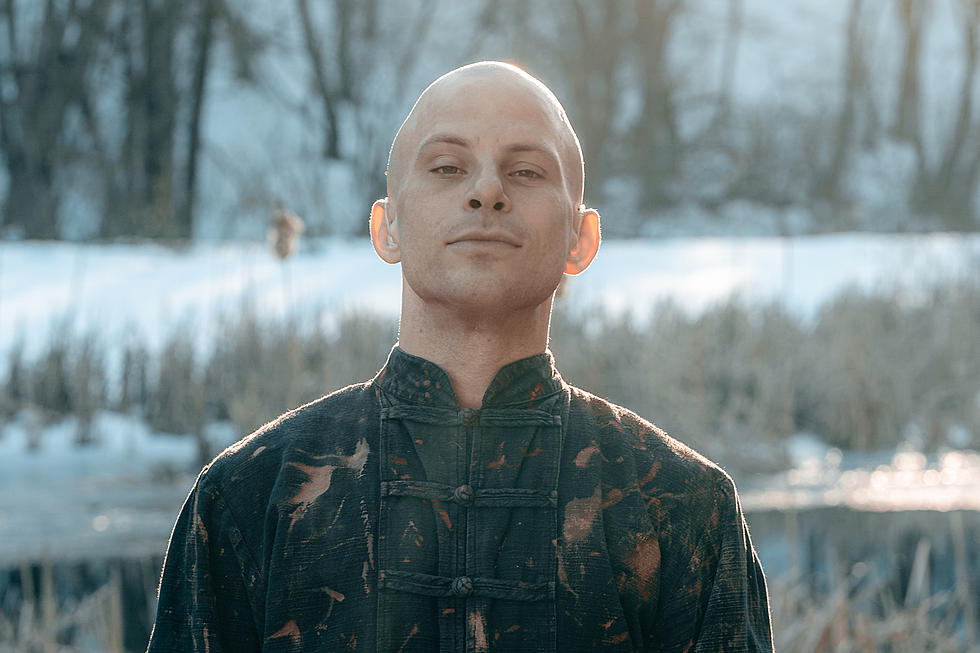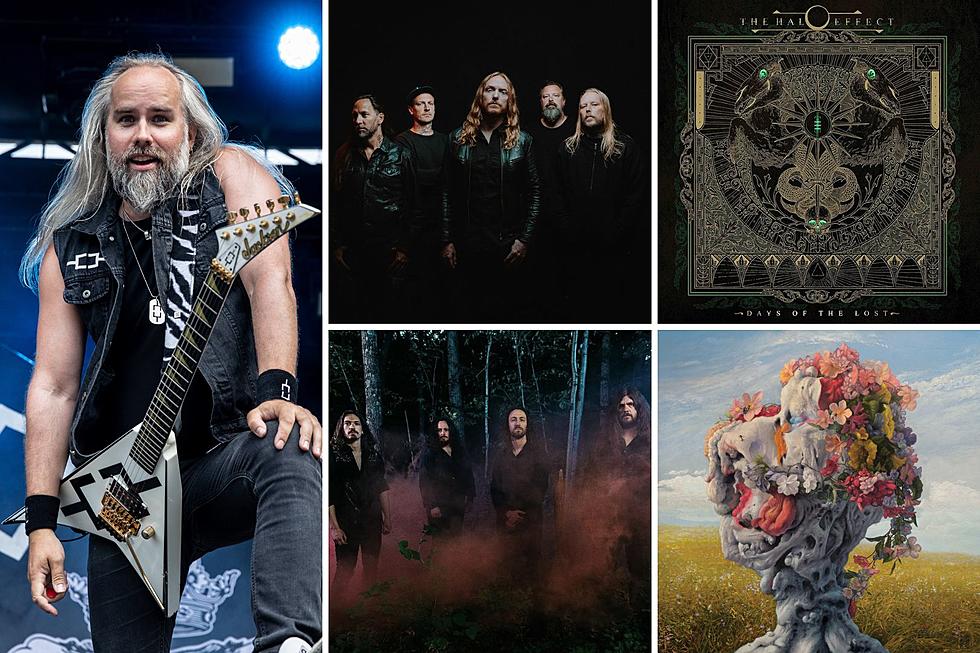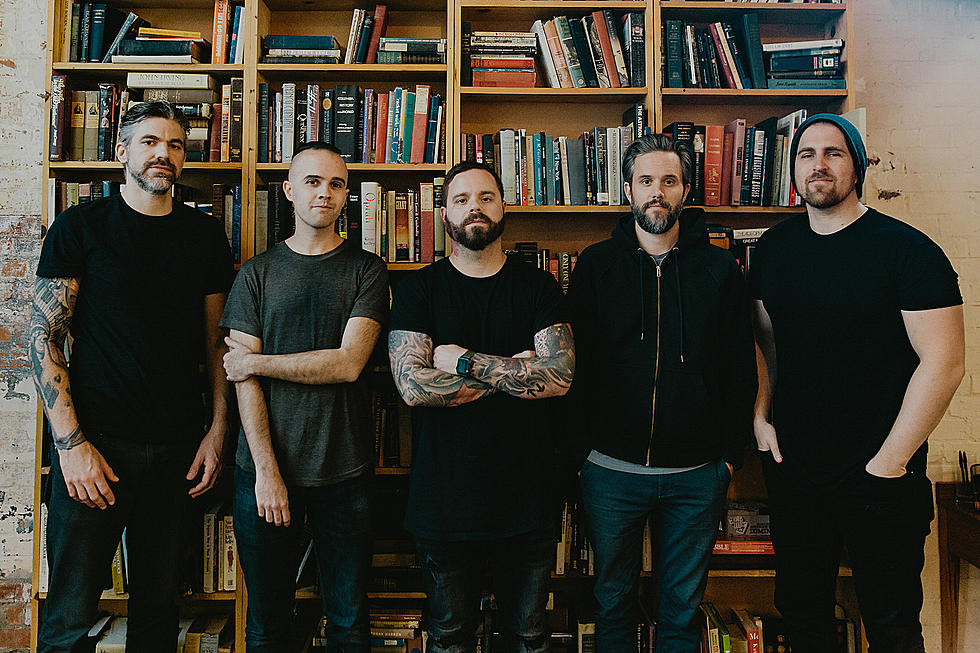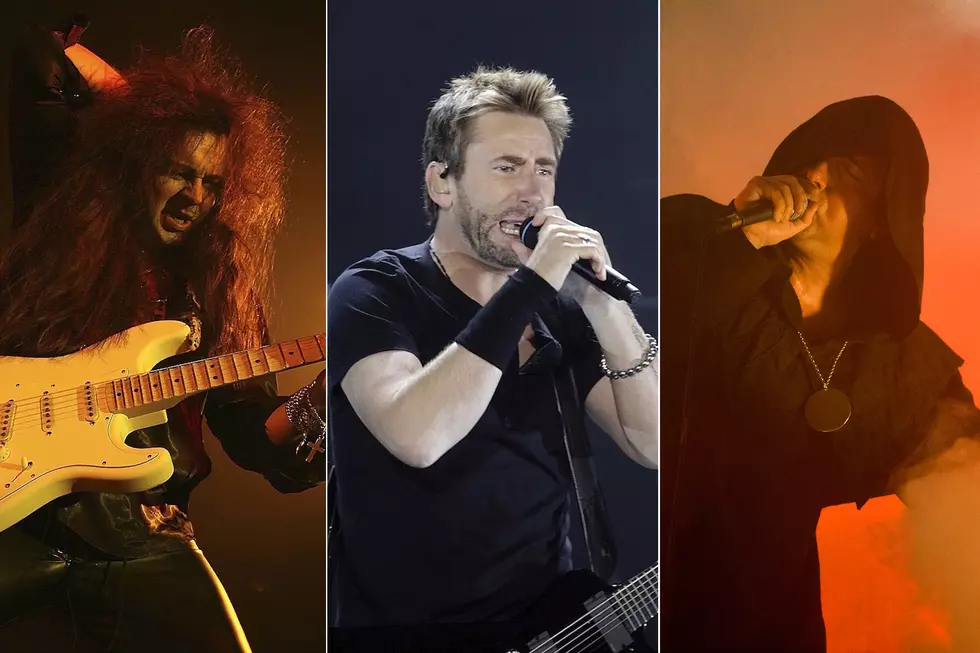
Rivers of Nihil’s Jake Dieffenbach on Life as a Metal Vocalist Who’s Hard of Hearing
An amusing anecdote emerged as Rivers of Nihil's Jeff Dieffenbach spoke with Loudwire recently about the progressive death metal band's adventurous new album, The Work, and his role as the Pennsylvania-based group's lead vocalist, despite him being hard of hearing.
He said he's no longer ashamed of liking Limp Bizkit.
It's a sentiment that seems to be growing in the wake of the Fred Durst-led rap-rock forefathers' comeback as hip dads. Though Bizkit lost favor after their early-2000s commercial peak, musicians such as Dieffenbach don't hide the act as a formative influence anymore.
"Limp Bizkit really captured me when I was young," the Rivers of Nihil vocalist explains, pointing to the act's 1997 debut, Three Dollar Bill, Y'all, as a touchstone. "And I was kind of ashamed to say that for a long time."
The topic came up as we discussed what kind of heavy metal first moved Dieffenbach to discover his commanding growl, the one that guided Rivers of Nihil through 12 years and four gradually more expressive albums, the latest by far the most expansive.
It was roughly when Dieffenbach started using hearing aids as a pre-teen that the impact of Bizkit, Korn and System of a Down found him through "skateboarding with friends and just listening to whatever music they had playing," he says. The power of the tunes prompted him to start singing along. Now, two decades later and a performer in his own band, he's firmly on the side of eschewing the notion of guilty listening pleasures.
"You can be proud of it!" Dieffenbach says with a laugh. "Who gives a fuck? Those bands all blew my mind at a young age because it's just the sheer intensity of them just letting out whatever they were feeling. I think that was just something I really needed. And I wanted something to be a part of, so I wanted to do that too."
Indeed, both juvenile catharsis and the urge for connection appealed to the budding musician who still uses devices to hear. But it was the intense sonics of the music itself that created a place for him to learn.
"The loudness of the music at that age offered me this totally secure environment, in the sense of how I could hear it at all times," Dieffenbach recalls. "It let me develop my ability to connect with something [audibly] instead of living within this loose collection of sound."
He clarifies, "I typically hear things on the low end of the frequency spectrum. When people are talking, high-pitched sounds go right over my head." He admits that, as a musician, "It is a weird thing. I have to allow a moment for a sound to pass and for me to register what was either said or played, if I'm not familiar with it, and make my way back to being in the pocket, whether it's a social conversation or a performance." He also quips, "It's funny for me, but for everyone else, I don't know."
That relaxed approach, coupled with an earnest work ethic, sharpens Dieffenbach's edge. Hearing issues don't define him. And longtime Rivers of Nihil fans already knew his story; it's been emphasized in coverage of The Work as a talking point for new listeners.
The work, of course, extends to the road. The band just completed a fall U.S. tour supporting The Black Dahlia Murder with several others, their last trek for the year before taking the show to Europe in 2022. (Hopefully, depending on the state of the pandemic.)
On the fall tour, Rivers of Nihil took a professional step up and started using in-ear monitors for the first time. As musicians know, the earbud-like gadgets fit directly into a performer's ear to help them better hear themselves and their bandmates during a live performance.
"So in a lot of ways," Dieffenbach relays, "that's what the two hearing aids I wear every day are doing for me. But now I have this thing that does that for me onstage."
Yet there's a time before each show, as he swaps his regular hearing aids for his in-ears, where a canyon exists. "I'm not wearing anything, and it's complete silence," Dieffenbach notes. "I'm not completely deaf — I can still hear without the devices. But going from wearing something amplifying the sound all day to wearing nothing," he confirms, is still a shock.
Also a shock — to the listener's ears, that is — are Rivers of Nihil's first two albums of tech-y death metal. On their third, 2018's Where Owls Know My Name, they began incorporating more atmospheric passages with clean singing from bassist Adam Biggs, especially on the title track. That territory is explored further on The Work, as the subdued sections lean into a mystical tone. Perhaps the pandemic gave the group room to experiment.
"It was after COVID that we really started work on it, after our last European tour, which was the last touring cycle for Owls," Dieffenbach remembers. "We didn't have any plans to tour the rest of 2020 to spend finishing recording The Work. So we lucked out in the sense that we didn't have any tours on anything we had to cancel because of COVID. And I think in a lot of ways it made the process easier to have that space and time."
What is "the work," though? Rivers of Nihil albums all seem to connect thematically — especially with the instrumental saga "Terrestria" that threads through each one — but the meaning of The Work is just as meta and all-encompassing as the title implies.
"To put it simply, The Work is describing the kind of relationship that we've all had with the band," Dieffenbach says. "The wear and tear of traveling, the relationships with each other and the audience, the music industry. Plus the demand and the desire to be here, and what we and others want out of it."
After all, you have to put in the work to get the reward.
Rivers of Nihil, The Work (Full Album)
2021's Best Metal Songs (So Far)
More From Loudwire









